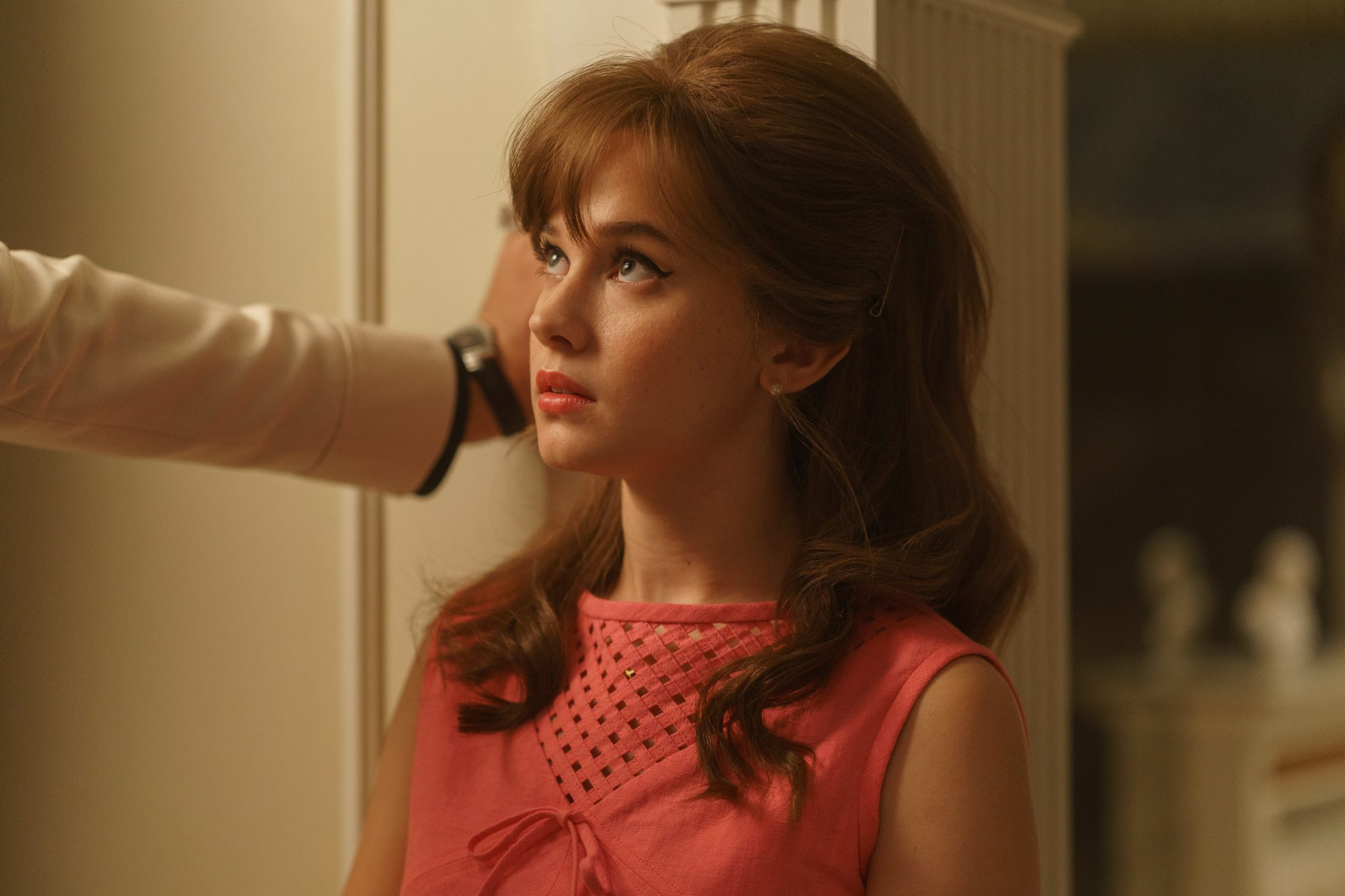Sofia Coppola’s focus on the emotional world of adolescent women turns its gaze to Priscilla Presley
In a 2013 episode of the podcast This American Life called ‘Tribes’, the author Andrea Seigel remembers a friend she had in fourth grade. They would sit together in Seigel’s bedroom and the friend would “delicately” sort through Seigel’s shell collection. “She’d murmur what she liked about each shell, and I’d get this tingling throughout my skull. … I know how weird that sounds. But it was like starbursts in my head. Starbursts that open on the crown and then sparkle down at the nape like this warm, glittering water rushing under your scalp.”
Seigel began to seek out this strange feeling that was brought on by an only guessable combination of soft sounds and inanimate objects. It turned her head into a ‘snow globe’ but also left her feeling ashamed. She worried she was “pervy” and “miswired”. It came as an enormous relief to her then, when she discovered that this experience had a name: ASMR, Autonomous Sensory Meridian Response. Seigel realised there were many like her who congregated around “whisperer videos” on YouTube. She finally told her husband about it.
Ten years on and – regardless of whether it gives you the tingles or not – our contemporary vernacular is ASMR inflected. The style of what were once niche ‘trigger videos’ is now ubiquitous and particularly synonymous with social media: the slow rustle of unboxing videos; anything tagged GRWM (Get Ready With Me); how girls introduce cosmetics or drinks by tapping their acrylic nails on the packaging, it’s in the shell-sorting murmurs of the Kardashians as they open intricately folded packages of expensive gifted goods.
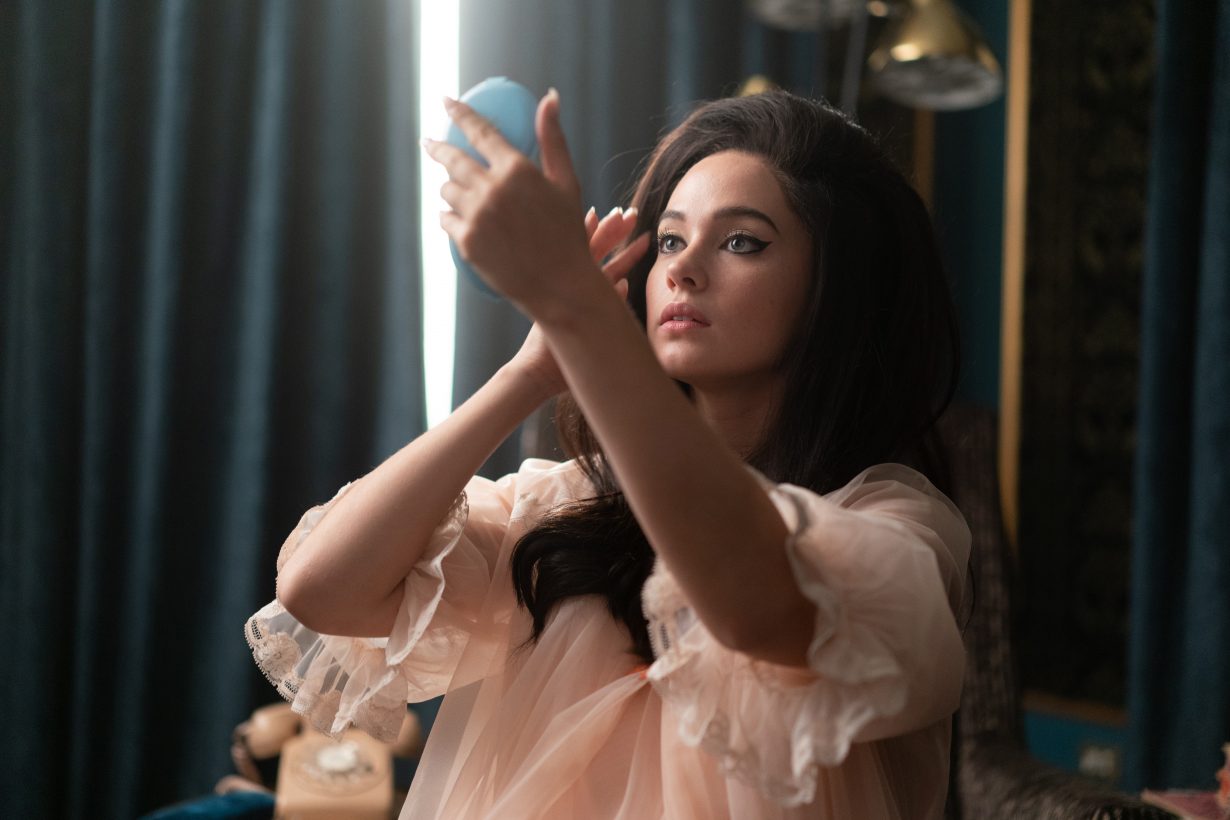
Which brings me, in more ways than one, to Priscilla: heavy Chanel bottles clink as they are lifted from the vanity case and placed on the counter; Priscilla’s feet push into the artificial fibres of a thick shag pile carpet; fake eyelashes are applied in close-up. It’s the stone-cold fidelity to the products and materials of the 1960s, shot through a contemporary, ASMR lens, which is one of Sofia Coppola’s tenets: to make a distant and unknowable adolescence emotionally and culturally immediate.
An unboxing shot: Elvis gives Priscilla a watch and we only see this from above – only their pilgrims’ hands, his heavy gold ring. It is trance inducing, it is sumptuous, it casts a daze on the viewer and recreates (triggers) in us the daze of the lead character. Priscilla (Cailee Spaeny), fourteen years old when Coppola begins her story, is picked up by Elvis’s respectable yet pimplike friend while she sips a Coke and does her homework in a diner near an American military base in West Germany. She is in ninth grade. Elvis is already famous, serving his draft. His friend convinces Priscilla’s parents to let her attend a party at Elvis’s house.
Throughout Priscilla there is Spaeny’s, let’s call it, ‘glittering, water rushing’ ability and there is also the control her character must display. The casting is masterful, to the extent that when we first get to see Elvis (Jacob Elordi), as Priscilla enters that first party, my heart fell that it wasn’t actually him. Luckily, Elordi’s voice carries it (he is as convincing vocally here as he is in Emerald Fennell’s recent Saltburn where he plays the poshest British boy at Oxford); if you closed your eyes, it could be him … but I wouldn’t. At the party, Elvis directs Priscilla to his bedroom. She goes there alone and waits for him. His army uniform is hanging on a mannequin; his room, she seems to know, is full of future relics. His lines when he comes up to her (“It’s nice to see girls from home”, “I wish my mama could have met you”, “… homesick …”) don’t matter because she is a schoolgirl, and he is already the King. They start dating, chastely.
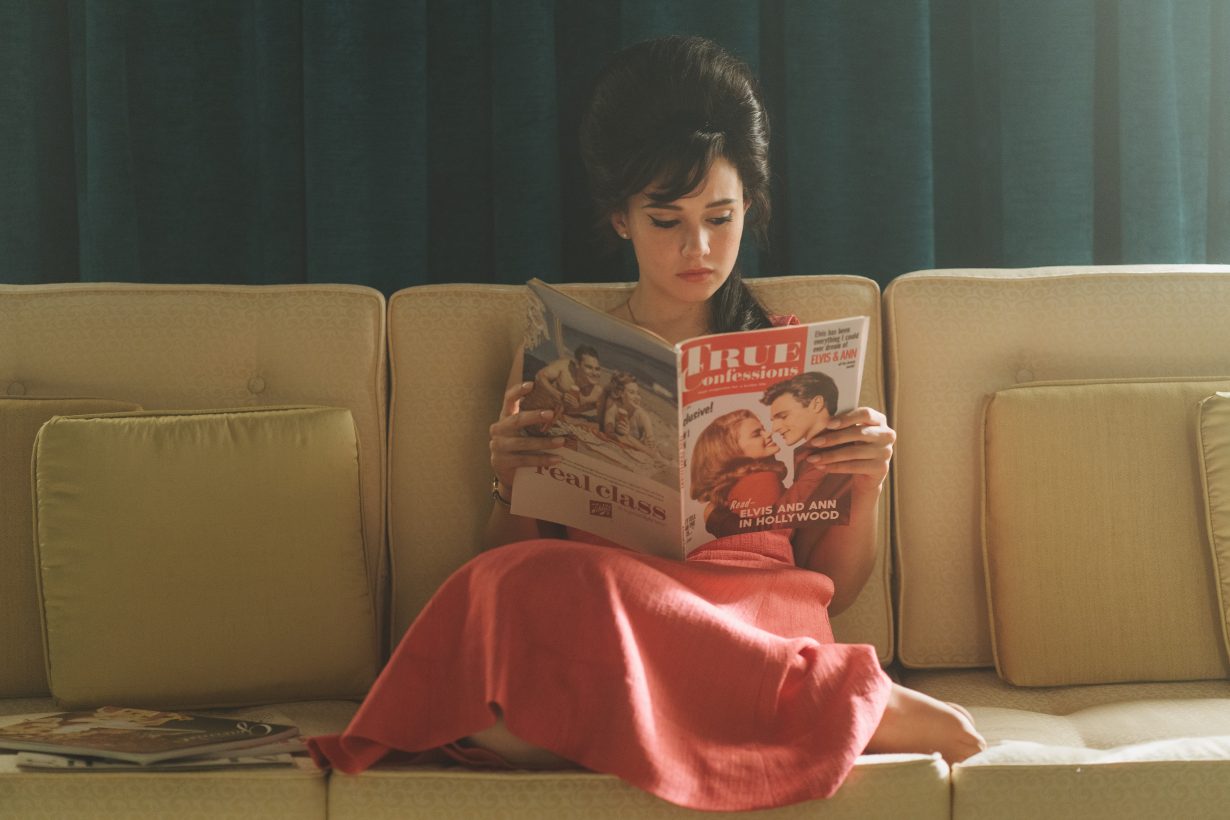
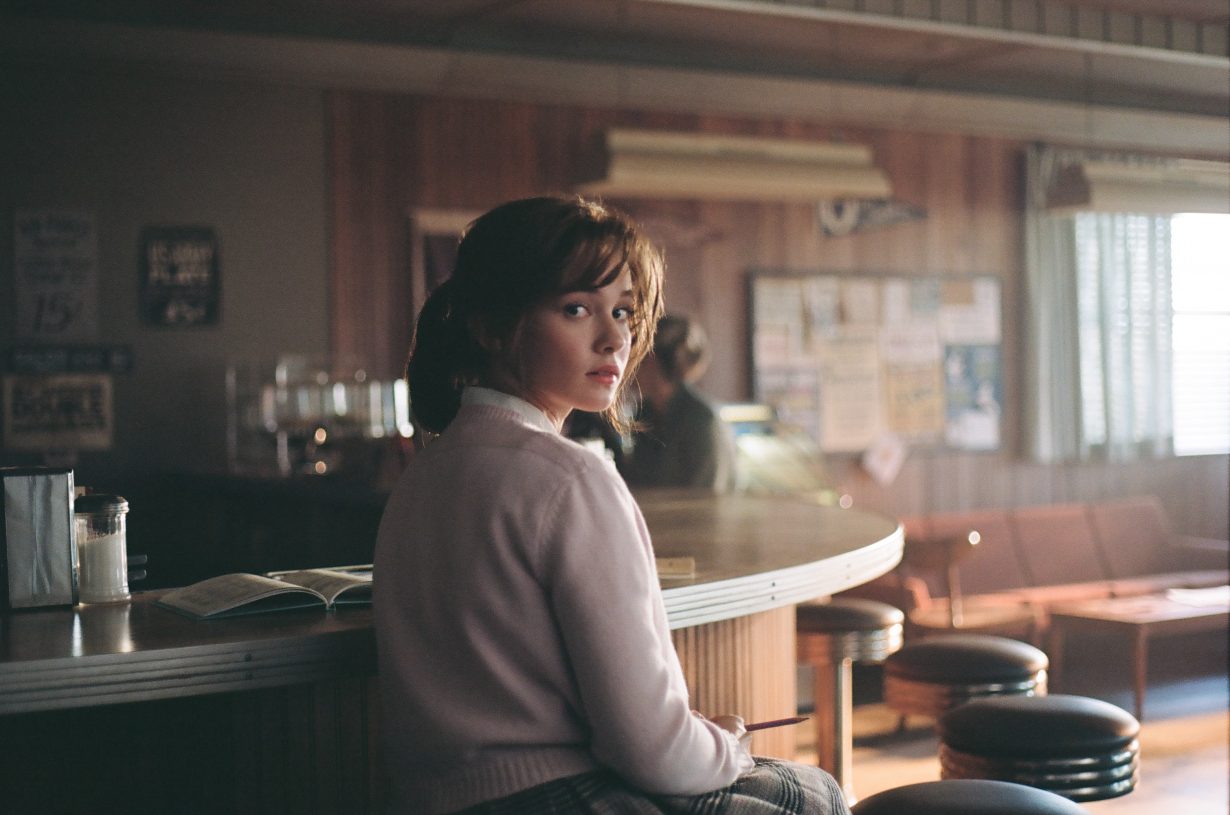
Soon Priscilla is visiting him in Graceland, then she is on a trip with him to Vegas wearing polka dots and sunglasses, with this gleaming Elvis, his arm slung over her, keeping her so close. There is no sex, but he has her sleep in his bed. There are comments from the females in his entourage (“Wow. She’s young”; “She’s just a little girl”.) There are pills to keep her awake. Pills to make her sleep (“You slept for two days”). Her temporary custody is signed over to Elvis’s father – the only condition of her extended stay in Graceland, as stipulated by her stepfather, is that she attend a Catholic high school and graduate.
While there is a certain ring of hell reserved exclusively for mothers who allow their daughters to be pimped out in ways however slight, it is clear in Coppola’s script (based on Priscilla Presley’s 1986 memoir Elvis and Me, written with Sandra Harman) that society provided no other choice here. Even though Priscilla’s mother Ann (Dagmara Dominczyk) resists the first time her daughter wishes to attend the adult party, the eventual understanding is that anyone would have to fall to Elvis-levels of money, to the unprecedented fame, to the heat of the voice and the talent. Especially back then, when celebrity of this type was relatively new and untainted by tawdriness. When talent was respected and the monstrosity that so often accompanies it was covered up. Coppola shows us how the texture of Priscilla’s virgin hair turns dull when it is dyed black on Elvis’s command; she shows us Elvis’s affairs which are heralded in the magazines Priscilla reads; there are fights, but there is no true debasement. There is a protective force extended over the legacy of the characters, which one can imagine came through the oversight of Priscilla Presley herself, as the film’s executive producer.
Elvis is opinionated, but shy with Priscilla. He holds out, there are no thunderous sex scenes. When he acts badly with her, he seems to be reaching for something. Coppola’s script is subtle, deft. After one cruel flurry of words, Priscilla says she’ll leave him. He runs after her and says: “You need someone who’s going to take you right up to that point”. That point of what? Expressing something true? The point of realising she wants to leave, and simultaneously, that she won’t? Priscilla’s biggest (perhaps only?) ‘thank you’ and laugh in the film comes when Elvis gives her a gun.
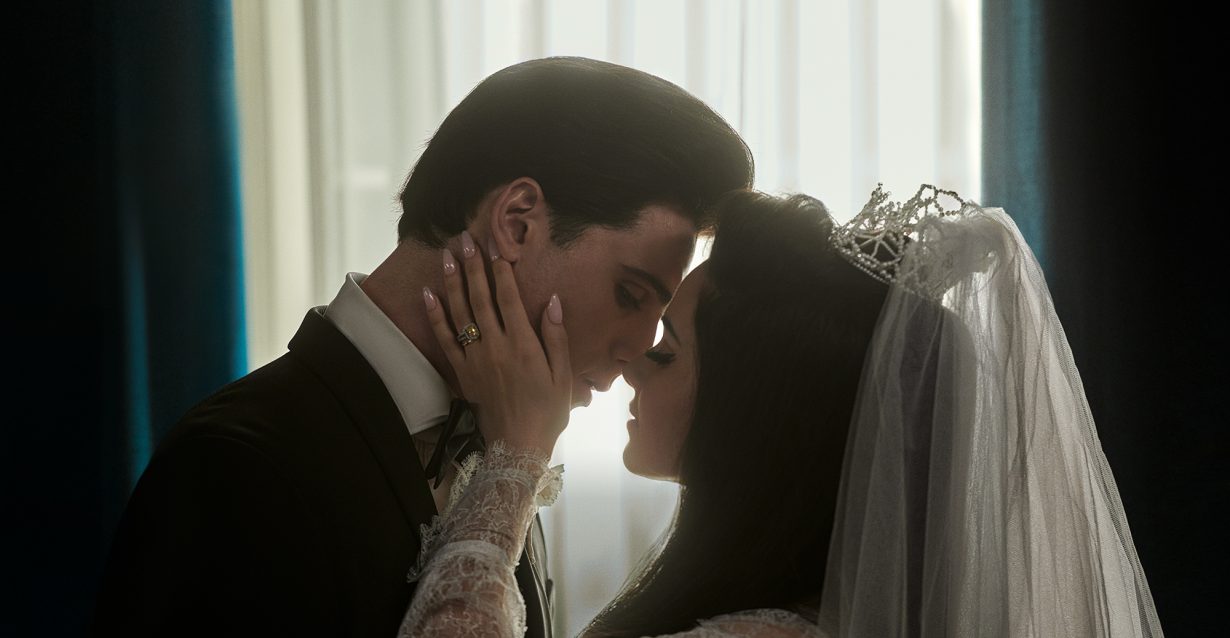
Much of Coppola’s work has been taken up with wondering at the mystery of a young woman’s thoughts and feelings beneath the prettiness of her skin. This was writ large in The Virgin Suicides (1999) and was transposed onto a slightly older character in Lost in Translation (2003). Marie Antoinette (2006) begins when the fourteen-year-old Marie is sent to a king’s foreign court to marry a dauphin; in The Beguiled (2017) a teenage girl wins over an injured soldier and in doing so destroys him; in The Bling Ring (2013) teenagers in LA run around stealing celebrities’ shit and believing for a moment that they’ve won a different life. Coppola’s focus is on the still, poker-faced surface of girls while beneath they have those explosive snow globe experiences. They wonder if what they’re experiencing is normal, while they know that in some ways it isn’t; they begin to suspect that society is set up to exploit, not protect them; they realise that they have no means of expressing this that wouldn’t make the experience stop.
Priscilla is that rare thing – a beautiful, intelligent film intended for the mass market. The track falters slightly towards the ending, and you could read this as intentional – the confidence of the piece skipping beats as its subject, the couples’ relationship, disintegrates. In the final scene, Priscilla drives away from Graceland for good, as Dolly Parton’s song ‘I Will Always Love You’ plays. Legend has it that Elvis sang this song to Priscilla when they eventually got divorced. Legend also has it that Parton wrote this song on the same day she wrote ‘Jolene’. ‘We both know I’m not what you need’ goes the former; ‘Please don’t take him just because you can’ the latter. And there are teenage girls everywhere, still, building this American life, with their nails, and their crushes, and their songs, their hidden snow globe brains, their getaway cars, their exploitation, their panic they will not be safe. Their influence on culture has been disproportionately enormous. A whole world we have here, built by schoolgirls who never really had any choices, did they?
Roz Dineen’s novel, Briefly Very Beautiful, will be published by Bloomsbury in June
